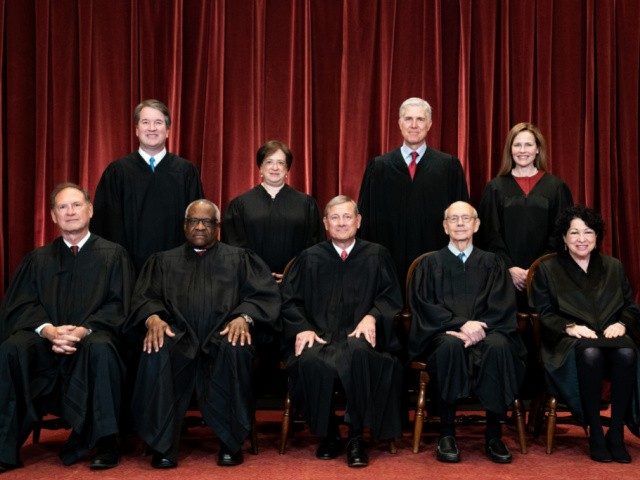Shareholders of Fannie Mae and Freddie Mac challenging the U.S. government’s claim on the mortgage giants’ profits were jolted yesterday by a Supreme Court decision that appears to foreshadow a loss on one of their arguments in a case currently before the court.
The Supreme Court ruled on Monday that administrative judges who hear patent disputes were unconstitutionally insulated from the presidency and Senate-confirmed senior officers of the executive branch.
Shareholders of Fannie and Freddie made a very similar argument in December, asking the Supreme Court to uphold the ruling of an en banc panel of the U.S. Court of Appeals for the Fifth Circuit that held the structure of the Federal Housing Finance Agency unconstitutional because it is an independent agency, run by a single director who serves a fixed five-year term and is removable by the president earlier only “for cause.”
Many legal scholars and court watchers expect the shareholders to prevail in that part of the argument. The Supreme Court last year declared a similar arrangement was unconstitutional in a case challenging the Consumer Finance Protection Bureau. A decade ago, the court struck down a clause in Sarbanes-Oxley that made members of the Public Company Accounting Oversight Board protected from removal except for cause.
The solution to the unconstitutional status of the patent administrative judges, however, was simply to give the director of the U.S. Patent and Trademark Office the power to review the judges’ decisions. The court declined to strike down the entire 2011 statute that made appeals easier, as Justices Neil Gorsuch and Clarence Thomas urged the court to do. The court also did not declare any of the earlier decisions of the administrative judges void.
Shareholders in the Fannie and Freddie lawsuit argued in December have asked the court to actually reverse a 2012 decision by the FHFA’s director that channeled nearly all of the firm’s profits to the Treasury Department. That is a step further than the Fifth Circuit was willing to go. And in Monday’s patent decision in United States v. Arthrex, the Supreme Court appears to have tipped its hand that it will not go that far either.
Several of the justices expressed similar thoughts during oral arguments in December.
“Your remedial ask is a big one and hard for us to swallow,” Justice Gorsuch said to the attorney for the shareholders.
Justice Sonia Sotomayor described going beyond ruling that the FHFA director could be removed at will by the president as “counterintuitive, perhaps illogical.”
The constitutional argument is not the only path to a win for shareholders in the case. They have also argued that the FHFA went beyond its statutory role as conservator when it agreed to give up future profits in exchange for a more flexible dividend payment to Treasury. Agreeing to give up the profits, they argued, was incompatible with the traditional role of a conservator and Congresses use of that term in the law bound the FHFA to stay wit
A fractured majority of judges on the Fifth Circuit panel agreed with that argument, although it received little attention in oral arguments before the Supreme Court, where most of the time was spent on the constitutional challenge to the FHFA. In a similar case, Perry Capital v. Mnuchin in U.S. Court of Appeals for the D.C. Circuit, Judge Janice Brown also backed that view—although she was in the dissent in that case.
One unrelated case, Borden v. U.S., decided last week by the Supreme Court, appeared to offer a ray of hope that at least some of the Justices could find this argument persuasive. In a dissenting opinion, Justice Brett Kavanaugh—joined by Justices Samuel Alito and Amy Coney Barrett and Chief Justice John Robert—argued that when Congress “borrows terms of art in which are accumulated the legal tradition and meaning of centuries of practice,” the court should assume that Congress “knows and adopts the cluster of ideas that were attached to each borrowed word in the body of learning from which it was taken.”
That appeared to echo the reasoning that Judge Brown and the Fifth Circuit employed to support the view that the FHFA cannot go beyond the traditional powers of a conservator. Unfortunately for shareholders, only four Justices signed on to that view in Borden.
The cases are Collins v. Yellin/Yellin v. Collins, Nos. 19-563 and 19-422 in the Supreme Court of the United States; United States v. Arthrex, No. 19-1434 in the Supreme Court of the United States; Borden v. U.S., No. 19-5410; and Perry Capital v. Mnuchin, No. 14-5243 in the U.S Court of Appeals for the D.C. Circuit.

COMMENTS
Please let us know if you're having issues with commenting.